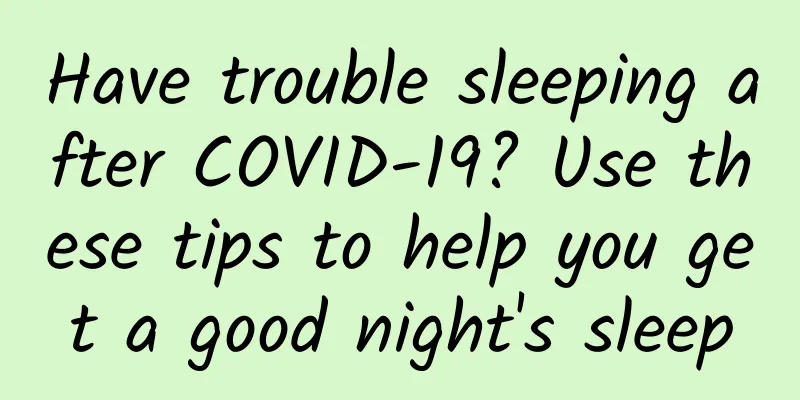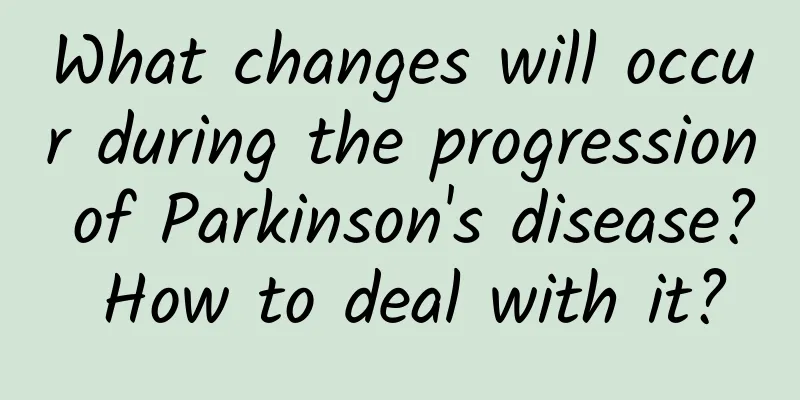Have trouble sleeping after COVID-19? Use these tips to help you get a good night's sleep

|
Currently, many "Xiaoyang people" and "Yangkang people" have poor sleep quality or even insomnia, which makes people wonder: Does the new crown really affect sleep? Will poor sleep quality affect the recovery of body functions? How to regulate it correctly? In the process from COVID-19 infection to recovery, the body's own immune system plays a major role, and sleep quality affects the body's innate immunity and adaptive immunity. Sleep disorders can also induce neuroinflammation and promote the destruction of the blood-brain barrier; antigens and inflammatory factors can also enter the brain, causing viruses and bacteria in the body to infect the brain and central nervous system. Therefore, "sleep power" is "immunity", and regular and sufficient sleep plays an important role in fighting viral invasion and improving immunity. Why COVID-19 may affect sleep In the early stages of infection, you will have low energy, fever, frequent drowsiness, and fatigue. After sleeping too much, you will experience insomnia and poor sleep quality. Many symptoms of the new coronavirus can cause sleep problems, such as body aches and even coughing in the middle of the night, which naturally interfere with normal sleep. The human body will produce a large amount of adenosine after exercise, which promotes sleep. However, during the COVID-19 infection, the amount of exercise is significantly reduced, resulting in insufficient adenosine secretion in the body, which in turn leads to problems such as difficulty falling asleep. From a psychological point of view, because the new coronavirus infection is a stressful event, people may experience anxiety, worry, or fear in the process of dealing with this event, thus inducing insomnia. How to improve sleep quality? 1. Calm yourself down In traditional Chinese medicine, a very important reason for insomnia is that Yang cannot enter Yin. After infection with the new coronavirus, Yang is insufficient, and Yin and Yang cannot combine, which easily leads to sleep problems. Therefore, it is very important to replenish Yang. It is recommended that you get more sun exposure at home or outdoors during the day. You can also go out for a walk and absorb the Yang energy if your physical and environmental conditions permit. 2. Maintain a stable work and rest schedule Many people go to bed early without feeling sleepy, which disrupts the body's sleep clock. You should maintain regular sleeping and waking times, go to bed only when you feel sleepy, and try not to do other activities in the bedroom, especially avoid working, studying, or eating in bed. You can try to stop using electronic devices such as mobile phones and tablets one hour before going to bed, and minimize the intake of nicotine (such as smoking), caffeine, and alcohol. In addition, listening to light music or meditating before going to bed can also help relieve sleep anxiety and help you fall asleep better. 3. Soak your feet with Chinese medicine before going to bed If you are under great pressure at work or have a bad life, and are often anxious, irritable, and have trouble falling asleep, you can try soaking your feet in Chinese medicine before going to bed: Take 15-30g ginger, 20g wormwood leaf and 5g salt, boil for 15 minutes, add water to the ankle joint, control the temperature at 40℃~42℃, and the recommended foot bath time is 15 minutes. Slight sweating is appropriate, not heavy sweating. If you have heart disease, the foot bath time needs to be halved and should not be too long. When soaking your feet, the blood vessels in the feet (and even the whole body) are expanded, which accelerates blood circulation, allows the core area to dissipate heat better, allows the body to enter a state of sleep better, increases deep sleep time, and forms good bedtime habits. 4. Use drugs to help you sleep Generally speaking, fatigue, drowsiness, insomnia, and easy fatigue are common pathological reactions after infection with the new coronavirus. They will gradually disappear after 7 to 10 days of rest and adjustment, but may last longer in some patients. However, if there is a serious reversal of day and night, and you have difficulty falling asleep at night, and you cannot concentrate during the day and feel sleepy all the time, it is likely that the viral infection has affected your circadian rhythm. In this case, you need to see a professional doctor and choose appropriate sleeping pills under the guidance and help of the doctor to help you improve your sleep, such as the Chinese medicine tranquilizing brain nourishing liquid. Source: Lunan Pharmaceutical |
Recommend
Can women eat dried fruits to lose weight?
Nowadays, when we are losing weight, we pay speci...
How to lose weight during menstruation
Don't blindly lose weight during the menstrua...
Why do I get hungry quickly when I am six months pregnant?
When pregnant for six months, the pregnant woman&...
Is it possible to get pregnant if the endometrium is only 5mm?
There are two relatively important reproductive o...
Can I wash my hair on the first day of my period?
Whether to wash hair during menstruation has alwa...
What is the situation with the left ovarian cyst?
Some women may experience symptoms such as the ap...
Treatment for genital herpes virus
Many of our female friends are very prone to geni...
What are the methods of breast massage to relieve breast hyperplasia?
There are many kinds of breast diseases. Data sho...
What is vaginal discharge caused by candidal vaginitis?
We usually have a lot of gynecological diseases, ...
Girls are sleepy, weak and have no appetite
Always wanting to sleep is generally seen as unco...
Breasts of girls during development
Girls' breasts develop during puberty. At thi...
When is the best time to take the ovulation injection?
Women are destined to be mothers. It is a very pa...
Why can't I get pregnant?
Many women start preparing to get pregnant and ha...
How much does hysteroscopic surgery cost?
Through hysteroscopic examination, the internal e...
Urinary and bowel disorders, waist and leg pain: It may be caused by sacral canal cysts
Ms. Yang, 55 years old this year, has been suffer...









